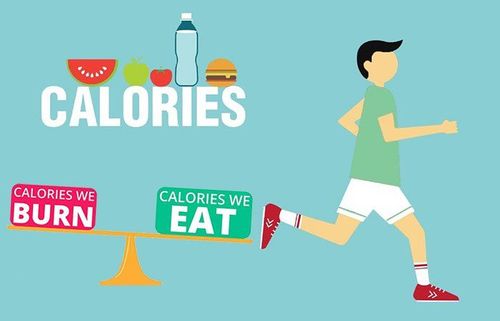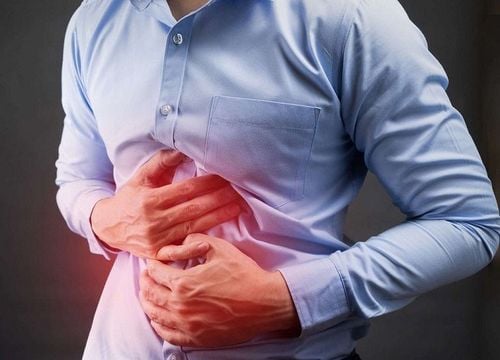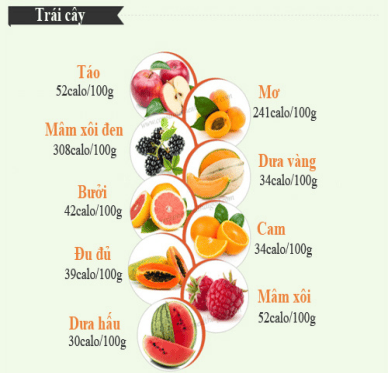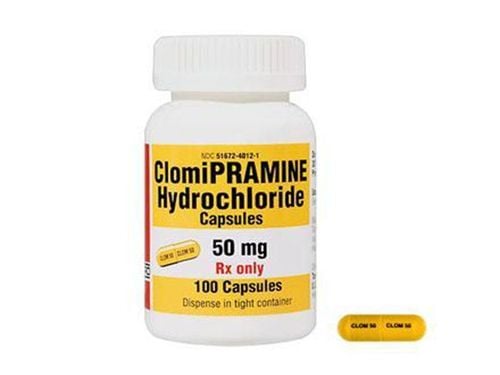This is an automatically translated article.
A calorie is a unit of energy. It is the amount of heat required to raise the temperature of one gram of water by one degree Celsius. The calories in food provide energy in the form of heat so that our bodies can function even at rest. The total number of calories you burn each day is called your total daily energy expenditure. So how many calories are healthy? Let's read the article below to help you better understand this issue!1. What is a calorie deficit?
When you eat fewer calories than you burn, you create a calorie deficit, also known as an energy deficit. Calories burned through exercise and non-exercise movement. The amount of calories burned during digestion (known as the thermic effect of food or TEF). The calories you burn to maintain basic body functions like breathing and blood circulation.To find out how many calories your body needs to perform basic functions, you can estimate your resting metabolic rate (RMR). Once you know your RMR, you can use a calculator to estimate your total daily energy expenditure. You can also test it in a lab or health club setting.
2. How many calories are healthy?
Calories are the units of energy that you get from foods and beverages, and when you consume fewer calories than you burn, you run into a calorie deficit.The number of calories you burn or expend with each day - also known as calories consumed - consists of three components:
Resting Energy Expenditure (REE). REE refers to the calories your body uses at rest for life-sustaining functions, such as breathing and circulating blood. Thermic effect of food. This has to do with the calories your body consumes to digest, absorb, and metabolize food. Active energy expenditure. This refers to the calories you burn during sporting activities, such as exercise, and non-exercise related activities, including restlessness and housework. If you feed your body with fewer calories than it needs to support these three calorie-consuming components, you will put your body in a calorie deficit. Doing so consistently over a long period of time will help with weight loss.
On the contrary, you will gain weight if you regularly feed your body more calories than it needs to support these functions. This is called a calorie surplus.
Calorie Needs Calculation For most people, a 500-calorie daily calorie deficit is enough to lose weight and shouldn't significantly affect your feelings of hunger or energy levels.
To create this calorie deficit, you need to know what your maintenance calorie intake is. Maintenance calories are exactly the number of calories your body needs to support energy expenditure.
You can use a calorie calculator like the National Institutes of Health Body Weight Planner. Such calculators estimate your maintenance calories based on your weight, gender, age, height, and physical activity level.
Although the calorie calculator provides a good idea of your maintenance calorie needs and you can get a more accurate number by tracking your calories and weight for 10 days.

Thiếu hụt calo được tạo ra khi bạn ăn ít hơn so với lượng calo bạn đốt cháy
Your weight may fluctuate daily, but if your weight remains stable for 10 days, the average number of calories you consume per day is a good representation of your maintenance calories.
Divide the total number of calories you have consumed in 10 days by 10 to find your average daily calorie intake. Then subtract 500 calories from this number to determine your new daily weight loss goal.
For example, if you see your maintenance calorie intake as 2,000 per day, your new daily calorie goal is 1,500.
As you lose weight, your maintenance calories will decrease over time and you will need to adjust your calorie intake based on your weight loss goals.
However, to ensure healthy weight loss and adequate nutrition, women should consume no less than 1,200 calories per day and men no less than 1,500 calories.
3. How to create a calorie deficit in 2 easy steps
Step 1: Find out your daily calorie intake "How many calories should I eat a day to lose weight?" you may wonder. Let's start with the calories you're eating.Track everything you eat and drink for 3 days and tally your daily totals at FitDay.com or with an app like Lose It!, MyFitnessPal, or MyPlace.
Next, estimate how many calories you need to maintain your weight using the chart below based on your activity level — specifically, how often you exercise. These are sample calculations for a 185-pound man.
A. No exercise
Multiply your weight by 10 (For 185 pounds, that's 1,850 calories a day.)
B. One or two workouts a week
Your weight x 12 (2,220 calories)
C . Two to four exercises a week
Your weight x 14 (2,590 calories)
D. Five or more exercises a week
Your weight x 16 (2,960 calories)
Now compare those two numbers — the number of calories you currently eat compared to the number of calories you need to eat to maintain your weight. How far are you? If you eat more than your target amount, you will gain weight; If you eat less, you will lose weight.
Step 2: Determine Daily Calories Burned If you're not already in a calorie deficit, Aragon recommends a maximum daily calorie deficit of 500 calories when you're trying to lose some pounds. Aim for healthy and sustainable weight loss of 1-2 pounds per week. That means you eat fewer calories or burn more calories throughout the day.
So if our 185-pound man exercises 2 to 4 days a week, eating 2,590 calories a day will maintain his weight. Here's how his body uses those calories and some ways he can burn more calories.
3.1. Basal metabolic rate (BMR): 60% to 75% of daily calories burned This is the amount of energy your body uses to sustain life. You can get a rough estimate of this using an online BMR calculator that takes into account your height, weight, gender, and age.
70% = 1,813 calories
3.2. Thermic effect of food: 10% This is the amount of calories burned by digestion. In general, you burn 0% to 3% of the calories of the fat you eat, 5% to 10% of carbohydrates, 20% to 30% of protein, and 10% to 30% of alcohol.
10% = 259 calories
Since you use more calories from protein for digestion than using fat or carbs, make sure you reach your daily protein goal. That way, you can burn off more effort. For adult men, that means at least 56 grams of protein per day. Choose lean protein sources like chicken or fish.
3.3. Physical activity: 15% to 30% This is the amount of calories you burn through your daily activity level, including exercise and any other movement. If you wear a fitness tracker, you can get a pretty good estimate of how many calories you burn each day based on steps or heart rate. Or you can enter individual activities and exercises into an online exercise calculator.

Có thể tạo ra sự thiếu hụt calo thông qua việc tìm ra lượng calo nạp vào và lượng calo bị đốt cháy hàng ngày
You don't have to sweat every two days to get the benefits of moving more. Minimize sitting time, taking the stairs, fidgeting – it all adds up. In fact, our 185-pound man burns 178 calories in 30 minutes just by walking.
Dr. Schmitz says: Add some "exercise snacks" to your routine - run up the stairs at a high intensity for 20 seconds, followed by 40 seconds of slow walking and repetitions. Or do the burp for 20 seconds, then walk around and recover for 40 seconds.
(+200 to 600 calories)
Tip: Don't Forget About Liquid Calories It's easy to forget about morning juice or two glasses of wine with dinner. That's why it's important to monitor your drink intake. Fluids can easily add up and cause you to consume more calories than you think.
For example, a can of beer contains about 153 calories, depending on the brand. Drinking just two glasses will add 300 extra calories per day, which can be significant if you're only cutting 500 calories per day.
Plus, studies show your body absorbs more calories from processed foods broken down from their natural form. So if you have a smoothie, you'll absorb more calories than if you ate the same fruit in that raw shake. And foods in whole grain form tend to be more filling, which can help you eat less overall.
If you have any questions related to the topic of nutrition for the body that need advice from a doctor, you can leave your question in the ASK VINMEC DOCTOR section directly on the hospital website. Your question will be sent to the doctor and you will receive a consultation as soon as possible!
Please dial HOTLINE for more information or register for an appointment HERE. Download MyVinmec app to make appointments faster and to manage your bookings easily.
References: healthline.com, menshealth.com












